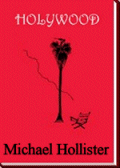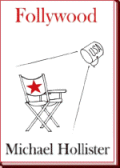Novelist & Critic
HOME PAGE
BIOGRAPHY
MODEL OF METAPHORS
DANEgerus
Patrick Garry, novelist
Apocalypse Now
The Best Years of Our Lives
The Big Chill
Billy Budd
The Bostonians
Casablanca
Citizen Kane
Close Encounters of the Third Kind
Coming Home
Daisy Miller
The Day of the Locust
Dr. Strangelove
Easy Rider
Fail-Safe
A Farewell to Arms
The Front
Gone with the Wind
Good Night, and Good Luck
The Graduate
The Grapes of Wrath
The Great Gatsby
Guilty by Suspicion
High Noon
Huckleberry Finn
Invasion of the Body Snatchers
Key Largo
The Majestic
Meet John Doe
Moby-Dick
The Old Man and the Sea
On the Waterfront
The Player
The Red Badge of Courage
Reds
The Scarlet Letter
The Shrike, based on Miss Lonelyhearts
2001: A Space Odyssey
The Sun Also Rises
Triumph of the Will
The Way We Were
Wise Blood
The Wizard of Oz
Woodstock
The World According to Garp
Good Night, and Good Luck
Still another picture had been released lately supporting the Communist perspective, directed and co-written by actor George Clueless. Once again the scapegoat is Senator Joe McCarthy, who had nothing to do with Hollywood but exposed Soviet spies employed in sensitive government jobs. The title Good Night, and Good Luck was the sign-off line of the hero, the deified CBS broadcaster Edward R. Murrow, who attacked McCarthy in a confrontation on television in 1954 that helped end the Senator's campaign against Communists in government and contributed to his death about three years later. Most of the media and the whole Democratic Party were attacking McCarthy, not just Murrow, yet ads for the Clueless movie declared, "In a Nation Terrorized by Its Own Government, One Man Dared to Tell the Truth." The nation was not terrified by McCarthy, who sustained approval ratings of well over fifty percent. It was Senator McCarthy who dared to pursue the truth against overwhelming media hostility in a country terrorized by Communist spies in its government and the danger of nuclear attack. Murrow was the friend of a Soviet spy named Laurence Duggan, who committed suicide after being interviewed by the FBI. Murrow blamed McCarthy, refusing to believe the truth, that his friend was an enemy agent.
In his televised attack, Murrow edited footage out of context to make McCarthy look menacing. In his movie glorifying Murrow, Clueless relies completely on Murrow's biased footage, layering propaganda on top of propaganda. He never depicts McCarthy except on the television screen and he provides no historical context informing the audience about the spies in the government, the theft of our atomic secrets, the Korean War, nor the threat posed by the Soviet Union. His movie presents as an alleged victim of McCarthy an employee in the Code Room of the Pentagon. Clueless confessed in a Salon interview that actors on the set informed him that McCarthy was right, that the employee was a member of the Communist Party. Clueless ignored this clue. He did not care about historical or moral accuracy because he was feeling sorry for himself and wanted to make a revenge movie. It was evident in his interviews that he wanted to compare himself to both the deity Murrow and to martyrs of McCarthy as a way of damning his own critics to politically correct hell as McCarthyites, re-inflating the Great Blowfish. One reviewer called his picture "a form of hysteria."
On the same day that Iraqis were voting for their new constitution, pundit Chris Matthews praised the Clueless picture on MSNBC. He suggested that its historical inaccuracy did not matter because it was really about critics of the Iraq War such as Clueless and himself. Clueless had mocked our military by declaring that it could not win any war anymore, but after that, it was Clueless who flopped, in one production after another. His other current movie Syriana supported the Islamic terrorist view of America so strongly that columnist Charles Krauthammer said it could have been scripted by Osama bin Laden. Likewise, Chris Matthews had become an unpopular pundit. In his review, after admitting that McCarthy was right about the enemy agents in our government, Matthews implied that citizens who criticized him and Clueless were like Senator McCarthy. If so, according to their own analogy, he and Clueless were like enemy agents. Inflating themselves, however, they both played martyrs while identifying themselves with the deity Murrow by using his sign-off line. Murrow helped to destroy McCarthy and half a century later, Matthews and Clueless were still jumping up and down on the corpse. According to their analogy, they do the same as Murrow did to people who do not agree with them.
For reviving the Great Blowfish, now stinking and full of holes, Good Night, and Good Luck was nominated for six Oscars, including best picture. Clueless was also nominated for his role in Syriana and that movie was nominated for best screenplay. Another sympathetic portrayal of terrorist homicide, Munich also was nominated for best picture, and Paradise Now, a sympathetic portrayal of suicide bombers, was nominated for best foreign film. Now the rebels in Hollywood were honoring the best recruiting films for al-Qaeda.
Hollyworld, pages 390-92.
The
HOLLYWOOD
Trilogy
Three historical novels dramatize Hollywood's global influence from the 1930s to the present age of terrorism, through the life stories of Sarah McCloud, a farm girl from Oregon, and Ryan Eisley, the son of a beer distributor from Ohio.



Click Book to Order